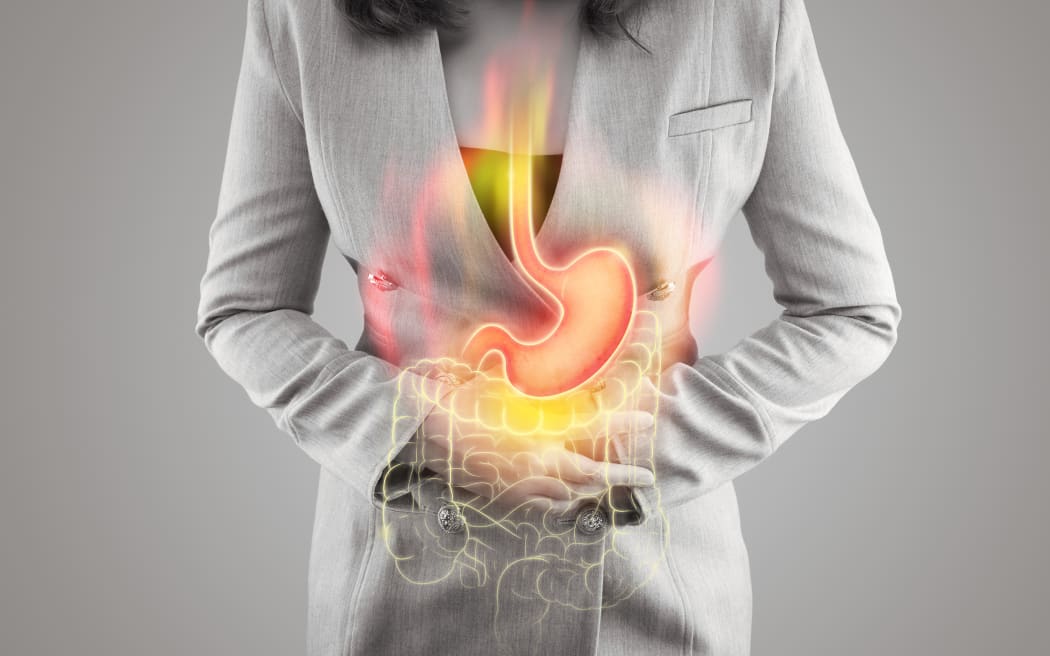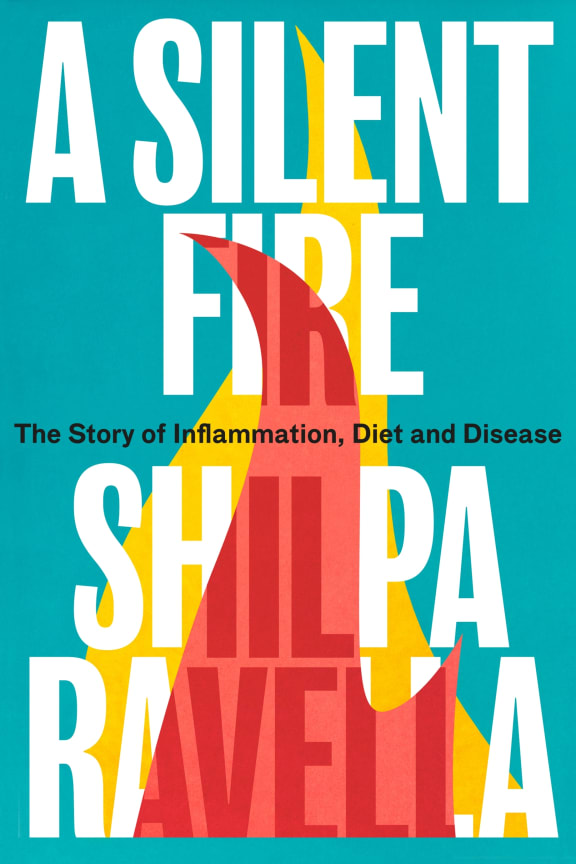One of our body's greatest weapons against illness and injury can also turn against the very thing it defends.
Inflammation can lurk in our bodies like “a silent, simmering force,” Dr Shilpa Ravella told Jesse Mulligan.
Dr Ravella is a transplant gastroenterologist who sees the impacts of hidden inflammation in her patients.

Photo: 123RF
She explains what it is, how it works and how diet and nutrition can help keep it in check in her book A Silent Fire: The Story of Inflammation, Diet, and Disease.
Inflammation is an ancestral force that evolved to protect us from pathogens, poisons and trauma, she says
“When you stub your toe, or you get injured in some way, you can see things like redness, heat, swelling, and pain.
“And these are the four cardinal signs of inflammation.”
In this case the inflammation is doing its job, working to heal the wound, she says.
“But sometimes inflammation can persist in the body, and you may or may not even see it.
“Now, we are coming to know so much more about this entity called silent inflammation. And this is the type of inflammation that just lingers in your body. It's chronic, it's ongoing, but it's at a low level. “
To all intents and purposes you are perfectly healthy, yet have a, “silent, simmering force within you that's a risk marker for disease,” Dr Ravell says.
So, inflammation can be both a cause and a consequence of disease, she says.
“When you think of a disease like heart disease, for example, you think of high blood cholesterol levels as a risk factor.
“But we know today that low level inflammation is also a risk factor, if you have this type of inflammation in your body, if it's lingering for long enough, it can actually cause a heart attack in the future.”
So why would an immune system which is built to protect us attack us instead? It’s a biological price that we pay for having this response, she says. But this biological price of inflammation is far more pervasive than the autoimmune diseases with which we are familiar.
“Because inflammation is not just involved in autoimmune disorders, but in the majority of our modern chronic disorders.
“So, things like heart disease, cancer, obesity, diabetes, neuro-degenerative disorders, these are all diseases that are tied to chronic, hidden inflammation.”
Environmental factors lie behind this new cluster of diseases linked to inflammation, she says.
“We evolved to develop these robust immune responses, but we also are eating differently than we did in the past, our environment is so different, we're breathing in different types of air, we're not exercising as much as we used to.
“So, we have a lot of low level triggers in the environment that is inciting our immune system, but not all at once. It's inciting it so that sort of creates this low level human response in our bodies.”
The majority of us have silent inflammation in our bodies, she says.
“So, it is a very, very big problem. And it is indeed a silent killer.”
Testing for specific inflammation is not viable or particularly accurate, she says. But there are some obvious physical markers.
Abdominal fat is particularly bad, she says.

Photo: Penguin
“The belly fat that wraps around your abdomen is a proxy for the visceral fat that wraps around your abdominal organs.
"And it's this visceral fat that is highly inflammatory, and turning out inflammatory molecules at all hours of the day. So just having some of that belly fat, unfortunately, is a marker of inflammation.”
An anti-inflammatory diet is the best thing we can do as individuals to counter the numerous cases of inflammation in modern life, she says.
"Try to focus on eating as many diverse plant foods as you can. This doesn't mean you have to label your diet in a certain way as a vegan or paleo or vegetarian or anything like that.
“But just that you include as many different types of plant foods in the diet as you can, because we know that these types of foods are highly anti-inflammatory.”
Fibre is your anti-inflammatory friend, she says
“Fibre is one of our most anti-inflammatory nutrients. And it's found in plant foods and whole plant foods.
And what fibre does is it feeds the bacteria in your gut. So, when your gut bacteria eat the fibre, they are making amazing anti-inflammatory molecules like short chain fatty acids, which calm inflammation in the gut and calm inflammation throughout the body as well.”
Plant foods contain numerous other useful nutrients, she says, such as polyphenols.
“These substances are also digested by the gut microbiome and calm inflammation throughout the body.”
Spices and herbs are also anti-inflammatory and keep meat to a minimum, she advises.
“Modern meat has changed so much from its predecessors. it has so much more saturated fat than it ever did previously. And, we eat it in very large quantities.
"So, if you choose to include meat into your diet, I would say use it as a flavouring.”

